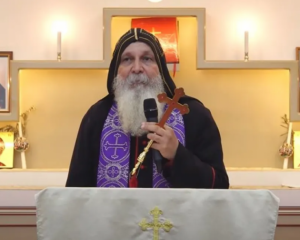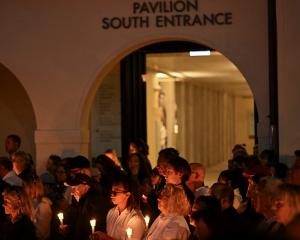
"The international community has become increasingly concerned by the continued lack of progress in achieving reconciliation, justice and accountability for serious allegations of violations of international human rights law and international humanitarian law," Paula Schriefer, U.S. deputy assistant secretary of state, told the UN Human Rights Council.
Sri Lanka, which rejected the resolution, has been under international pressure to deal with war crimes allegedly committed in the final stage of the 26-year conflict, when the army defeated separatist Tamil Tiger rebels.
Sri Lanka's ambassador, Ravinatha Aryasinha, told the talks on Thursday the island nation had made tangible progress in addressing accountability. He said parallel processes would be "counter-productive".
"Sri Lanka categorically and unreservedly rejects this draft resolution as it challenges the sovereignty and independence of a member state of the U.N ... and is inimical to the interests of the people of Sri Lanka," he said in a speech before the vote.
But Britain's ambassador Karen Pearce said: "This is not about needing more time. It is about the government not showing the political will to back a transparent, thorough and credible investigation that delivers truth to those who seek it."
The head of Sri Lanka's human rights council said the inquiry's eventual report could lead to sanctions on the country imposed by the UN Security Council, including a freeze of bank accounts and bans on travel by Sri Lankan leaders.
"That is where the problem will start," said Prathiba Mahanama. "But we still have an opportunity to do things in a way to prevent a report reaching the Security Council."
A total of 23 states voted in favour, 12 against and 12 abstained. States that voted against included China and Pakistan, while Sri Lanka's neighbour, India, abstained.
"JUSTICE CANNOT WAIT"
U.S. Secretary of State John Kerry said the vote "sends a clear message: The time to pursue lasting peace and prosperity is now; justice and accountability cannot wait".
"We are deeply concerned by recent actions against some of Sri Lanka's citizens, including detentions and harassment of civil society activists. Further reprisals against these brave defenders of human rights and the dignity of all Sri Lankan citizens would elicit grave concern from the international community," Kerry said in a statement.
The investigation will be led by the office of UN human rights chief Navi Pillay, a former UN war crimes judge.
Amnesty International said the inquiry would bring hope for thousands of victims of abuses in Sri Lanka.
Sri Lankan President Mahinda Rajapaksa told a gathering on Wednesday the West and the United Nations were talking about false allegations, and had failed to take similar action when the separatist Tamil Tigers had attacked people and religious places.
Rajapaksa was speaking in southern Sri Lanka among the country's Buddhist majority at a campaign event for local polls on Saturday.
Rajavarothiam Sampanthan, leader of the Tamil National Alliance, the main Tamil party, thanked the countries that supported the text.
"We appeal to the government of Sri Lanka to extend their fullest cooperation to ensure the implementation of the resolution ... for genuine reconciliation and (to) achieve permanent peace in this country," he said.












